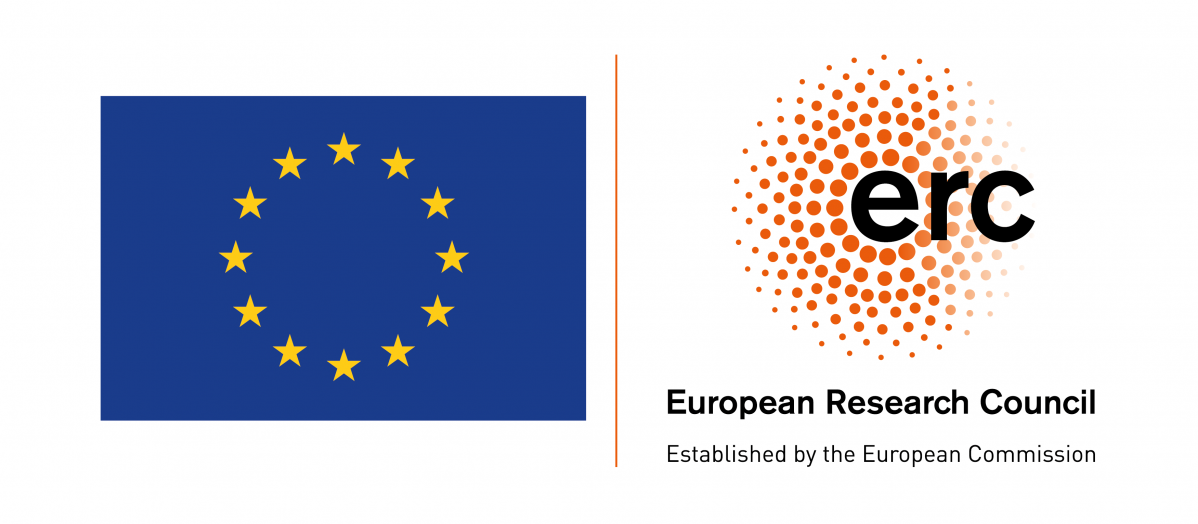archiv publikací
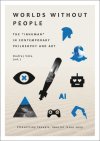
Worlds without People The “Inhuman” in Contemporary Philosophy
Cílem mimořádného čísla Filosofického časopisu s názvem „Světy bez lidí: ‚nelidskost‘ v současné filosofii“ je identifikovat a interpretovat klíčové aspekty pozoruhodného spektra obrazů člověka, jež se v posledních desetiletích vynořily v současné filosofii, umění a mediální kultuře. Jedná se o obrazy, které v kontextu posthumanistického, respektive transhumanistického myšlení rekonfigurují vztah člověka ke světu i k sobě samému v intencích „kosmické“ nepatřičnosti a násilí páchaného samotnou lidskou přítomností, jež je třeba odčinit.
Vychází v angličtině.
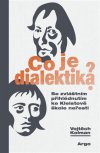
Co je dialektika? Se zvláštním přihlédnutím ke Kleistově škole neřesti
Dialektika, počínaje Zénónem – přes Marxe a Hegela – a Slavojem Žižekem konče, má za rámcový cíl uchopit myšlení v jeho utváření a zrodu. Jejími typickými tématy jsou tudíž pohyb a spor. Tím se vymezuje vůči logice, která popisuje neměnné zákony myšlení, a jako taková se orientuje spíš na výsledky myšlení než na myšlení samo. Jejím tématem jsou neměnné pravdy; spor představuje skok do nemyšlení, iracionality. Cílem knihy je přiblížit, co lze dialektikou v tomto smyslu rozumět, a to na pozadí širokého spektra příkladů z odlišných oblastí zkušenosti, od matematiky přes hudbu po literaturu a výtvarné umění.
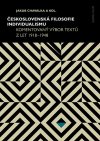
Československá filosofie individualismu. Komentovaný výbor textů z let 1918-1948
Kniha předkládá komentovaný výbor textů věnujících se z různých perspektiv problematice individualismu v československém kulturním prostředí mezi válkami. Každá z kapitol pojednává o jednom vybraném autorovi. Je uvedena stručným představením jeho díla a myšlení, po němž je četnář proveden četbou několika jeho klíčových textů. Vedle známých myslitelů, jako je T. G. Masaryk, E. Rádl, E. Beneš, L. Klíma, J. Patočka či J. Mukařovský, se zde pojednává o pozapomenutých filosofech (K. Vorovka, V. Hoppe, F. Pelikán, T. Trnka) či myslitelích pohybujících se na pomezí disciplín (F. Mareš, E. Chalupný, F. Tučný, A. Breisky), včetně solitérů, kteří navzdory různým intelektuálním módám lpěli na dialektickém způsobu myšlení (J. Kabeš, F. Sedlák).
Autory kapitol jsou Jakub Chavalka (FHS UK), Lenka Hanovská (FHS UK), Tatiana Chavalková BAdurová (FHS UK), Milan Petkanič (FF TRUNI), Richard Zika (FHS UK), Jiří Růžička (FLÚ AV ČR), Ivan Landa (FLÚ AV ČR), Jakub Marek (FHS UK), Josef Matoušek (FHS UK).
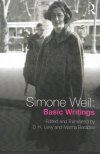
Basic Writings
Simone Weil is one of the most profound and thought-provoking thinkers of the 20th century. A teacher, factory and farm labourer, a political activist at home and abroad, a loving friend, daughter and sister—all these manifest a life devoted to the good in its many forms. Her writings explore the good open to us and the various routes to it, spanning philosophy, politics, science and spirituality. While she saw her vocation primarily as a philosopher—examining questions concerning human faculties, action and thought, the limits of language and our need of mediation, suffering and beauty for contact with reality—her startlingly original thought is often obscured by her having been too readily categorized as a Christian mystic.
Simone Weil: Basic Writings is an expertly edited anthology of Weil’s most important writings, presenting her philosophy as it relates to the architecture of human nature, politics, work, necessity, beauty, goodness and God. Working from the definitive French edition of Weil’s complete writings, D. K. Levy and Marina Barabas have translated the essays anew or for the first time, adding important notes and references absent from existing English language editions of Weil’s work.
Following an extensive introduction that gives an overview of Weil's life and thought, each part opens with a short preface situating the selected essays within Weil’s oeuvre.
Simone Weil: Basic Writings provides an excellent entry point to Weil’s philosophy, as well as a reference for students and scholars of Weil's thought in philosophy and related disciplines.
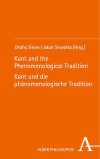
Kant and the Phenomenological Tradition - Kant und die phänomenologische Tradition
The common topic of the nine essays in this book is the phenomenological dialogue involving Kant and his 'invention of autonomy'. Is there any relevance left to the Kantian notion of autonomy after the intensive development of ethical and phenomenological thought, stressing the importance of otherness, which, by definition, is beyond the control of any autonomy? What are the fruitful aspects of the Kantian idea that still deserve preservation and development? While the first three contributions are immanently Kantian, the majority focus on the relationship between Kant and selected authors of the phenomenological tradition: E. Husserl, M. Heidegger, E. Levinas, J. Patocka and B. Waldenfels.
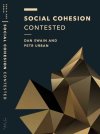
Social Cohesion Contested
In recent decades social cohesion has emerged as a major concern of states, policymakers and researchers. Social cohesion is represented as a desirable policy goal and as the basis for everything from economic growth to individual well-being. At the same time, it is increasingly presented as a single substance, which can be measured, tracked, and compared across diverse societies. But why should we think of the complex ways in which we can live well together in terms of a single substance? Social Cohesion Contested challenges this way of thinking, suggesting that social cohesion has become a buzzword that obscures more than it illuminates.
Dan Swain and Petr Urban trace the rise of the concept through the policy agendas of transnational and international bodies, and analyze the reactions of social researchers to the demands of policymakers for a clear and operationalizable concept. They argue that the term is frequently used in a way that assumes broad understanding and agreement, while in practice it is subject to contradictory definitions and often loaded with various implicit and explicit values, which become masked behind a veneer of scientific authority and normative legitimacy. The more that social cohesion is treated as a single substance with a clear…
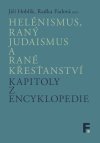
Helénismus, raný judaismus a rané křesťanství
Encyklopedie vychází ve své prvotní, pilotní verzi. Je výsledkem badatelské činnosti podporované Grantovou agenturou České republiky a vychází ze základního výzkumu, který zároveň rozvíjí kritickou diskusi se současným mezinárodním bádáním. Na vybraných tématech, zpracovaných jako encyklopedická hesla, zkoumá předpoklady dějin západního myšlení, kultury a náboženství, jež se formovaly v helénistickém a navazujícím období. Výběr hesel odpovídá stadiu vývoje encyklopedie, která zahrnuje zčásti základní obecná hesla, jež se vztahují k danému období, a zčásti speciální hesla, v nichž se odráží specializace jednotlivých přispěvatelů.
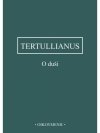
O duši
Tertullianův rozsáhlý spis De anima („O duši“; napsán kolem roku 210 po Kr.) představuje první zachované pojednání o lidské duši sepsané z křesťanských pozic, a jako takové je ve svém žánru zakladatelským dílem raně křesťanského písemnictví. Pozoruhodný spis, který je rozkročen mezi literaturou, filosofií, teologií a lékařstvím, je nejen polemikou s pohanskými koncepcemi duše, mezi nimiž zaujímá přední místo Platón, tento „hokynář, který v dobré víře prodal všem heretikům svoje koření“, ale formuluje rovněž vlastní koncepci „tělesné duše“ (corporalitas animae), která je v posledku „odnoží“ (tradux) duše Adamovy a předává se při pohlavním styku z rodičů na jejich potomky (tzv. traducianismus). Toto adaptované stoické dědictví, jež je v raně křesťanském myšlení svou propracovaností bezprecedentní, se pro Tertulliana stává nejúčinnější zbraní proti „heretickým“, platonismem ovlivněným naukám o preexistenci a stěhování duší, jež podle něho podkopávají samy základy křesťanského náboženství.

Conscious and Unconscious Mentality Examining their Nature, Similarities, and Differences
In this collection of essays, experts in the field of consciousness research shed light on the intricate relationship between conscious and unconscious states of mind.
Advancing the debate on consciousness research, this book puts centre stage the topic of commonalities and differences between conscious and unconscious contents of the mind. The collection of cutting-edge chapters offers a breadth of research perspectives, with some arguing that unconscious states have been unjustly overlooked and deserve recognition for their richness and wide scope. Others contend that significant differences between conscious and unconscious states persist, highlighting the importance of their distinct characteristics. Explorations into the nature of the transition from unconscious to conscious mind further complicate the picture, with some authors questioning whether a sharp divide between unconscious and conscious states truly exists.
Delving into ontological, epistemological, and methodological issues, this thought-provoking text challenges established paradigms and paves the way for a reimagining of consciousness research. It does so in an understandable and accessible way, making this a perfect companion for both experts and students of philosophy, psychology, and related fields.
Chapters 2, 4, 9, 10, 14 and 16 of this book are freely available as downloadable Open Access PDFs at http://www.taylorfrancis.com under a Creative Commons Attribution-Non Commercial-No Derivatives (CC-BY-NC-ND) 4.0 license.





